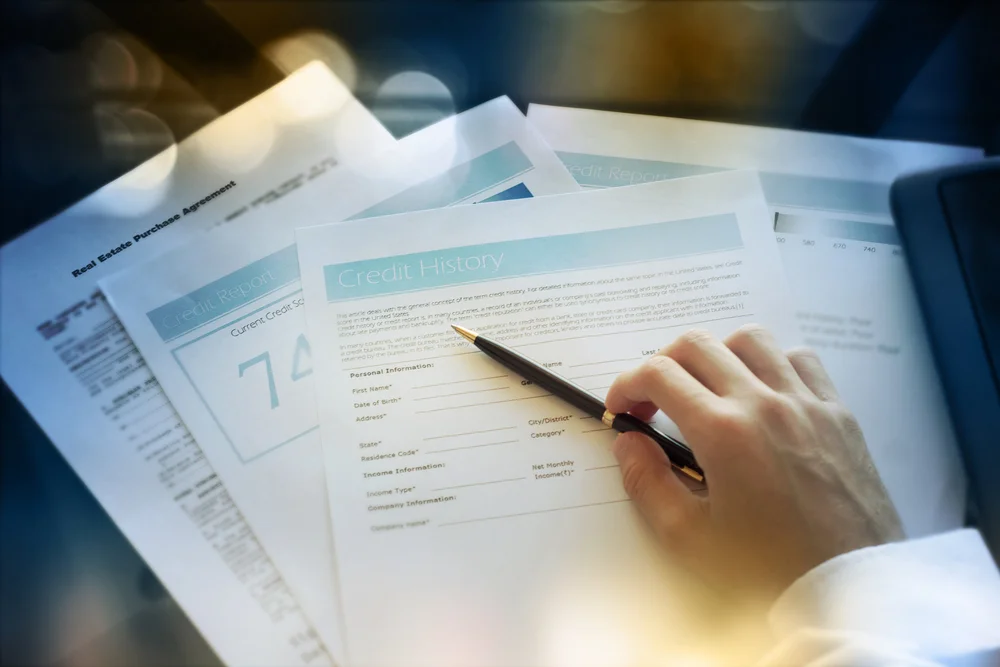Incorrect information may appear in your credit report – and you have a right to challenge it. We discuss how to raise a dispute with a credit bureau.
7 March 2023 · Fiona Zerbst

It pays to check your credit report regularly; not just to stay informed about your credit score, but to ensure the credit bureaus’ information about you is correct.
We examine why credit bureaus hold your information, what you should do if you notice an error, and how to successfully resolve the matter with the bureaus.
Tip: It’s vital to check your credit report to ensure your credit score is healthy. Sign up and check your credit score with JustMoney today.
Credit bureaus gather and collate information relating to your active credit agreements, including the original loan amount, monthly instalments, and outstanding balances.
“Using this information, credit bureaus update your credit profile to calculate your credit score,” notes Gerhard van der Merwe, senior associate at Trudie Broekmann Attorneys.
This information is shared with credit providers in the form of a credit report.
“Credit providers must assess your repayment history to ensure they don’t lend recklessly to you when you apply for credit. This protects you from becoming over-indebted,” Van der Merwe says.
It’s good practice to check your credit report at all the credit bureaus at least once a year.
“As per the national credit act (NCA), all credit bureaus in South Africa are required to give South African consumers one free credit report a year,” notes Ans Gerber, head of data insights at Experian Africa.
When checking your credit report, you should make sure that the following details have been correctly captured:
“Your aim is to verify whether the information contained in the report is a true and accurate reflection of your outstanding credit agreement balances, repayment history and defaults,” says Van der Merwe.
He says checking your credit report is important for identifying whether you’ve been a victim of fraud or identity theft.
“You may see information regarding credit agreements you don’t recall having entered into or were not a party to,” he says.
Reporting this information quickly is of critical importance.
If you’ve noticed incorrect information on your credit report, you can lodge a dispute with the relevant credit bureau. Most major bureaus allow for web-based dispute lodgement, provided the consumer is a registered user.
If you are using a credit score intermediary, you can lodge a dispute by following the instructions provided on the intermediary website.
Gerber notes that disputing with a credit bureau doesn’t attract any charges. As she points out, “Why pay one of the many credit clearing companies that charge money, for doing something you can do for free?”
Once a dispute is lodged, the NCA allows credit bureaus 20 business days to investigate.
“When you contact the bureau, you will be asked to submit a copy of your ID and proof of address (not older than three months) to verify your identity and make sure you’re not an imposter,” Gerber explains.
“It’s important that you check your emails for any communication requesting additional documents.”
Information that is disputed will not be displayed on your credit report during these 20 days. If the bureaus do not receive credible evidence from a supplier by the end of the period, the dispute will be resolved in your favour.
Van der Merwe says that if you are uncertain whether adverse information may be submitted about you to a credit bureau, you can speak to an attorney specialising in consumer law.
“You have a right to challenge the accuracy of any information relating to you, and to be compensated by anyone who has reported incorrect information to a registered credit bureau,” he notes.
If a dispute relates to a court judgment that has been cancelled, you’ll need to provide the credit bureau with a copy of the court order or a settlement letter given to you by the credit provider, says Van der Merwe.
“If the dispute relates to an inaccuracy in your payment history, and you’ve paid by EFT or in cash, provide proof of payment. You can also provide bank statements that reflect a debit order, or deductions indicating that regular payments were made.”
If you’ve settled the outstanding balance due in terms of the credit agreement, provide a copy of the relevant proof of payment or a closure letter issued by your credit provider.
“Provide as much information as possible to prove the information is inaccurate and should no longer reflect on your profile,” Van der Merwe recommends.
Gerber says that, even if you pay an account in full that was previously in arrears, the fact that you were in arrears will still reflect in your report. “It takes time for this information to stop reflecting – this is known as a retention period,” she explains.
The South African Law Centre website contains a data retention checklist, which sets out the periods that credit bureaus may retain specific information; including details of any disputes that have been made.
Tip: Is debt adversely affecting your credit report? Click here for a solution.
Free tool

info@justmoney.co.za
4th Floor, Mutual Park, Jan Smuts Drive,
Pinelands, Cape Town, 7405
© Copyright 2009 - 2025 · Powered by NCRCB29
Terms & Conditions
·
Privacy Policy
·
PAIA Manual
View your total debt balance and accounts, get a free debt assessment, apply for a personal loan, and receive unlimited access to a coach – all for FREE with JustMoney.